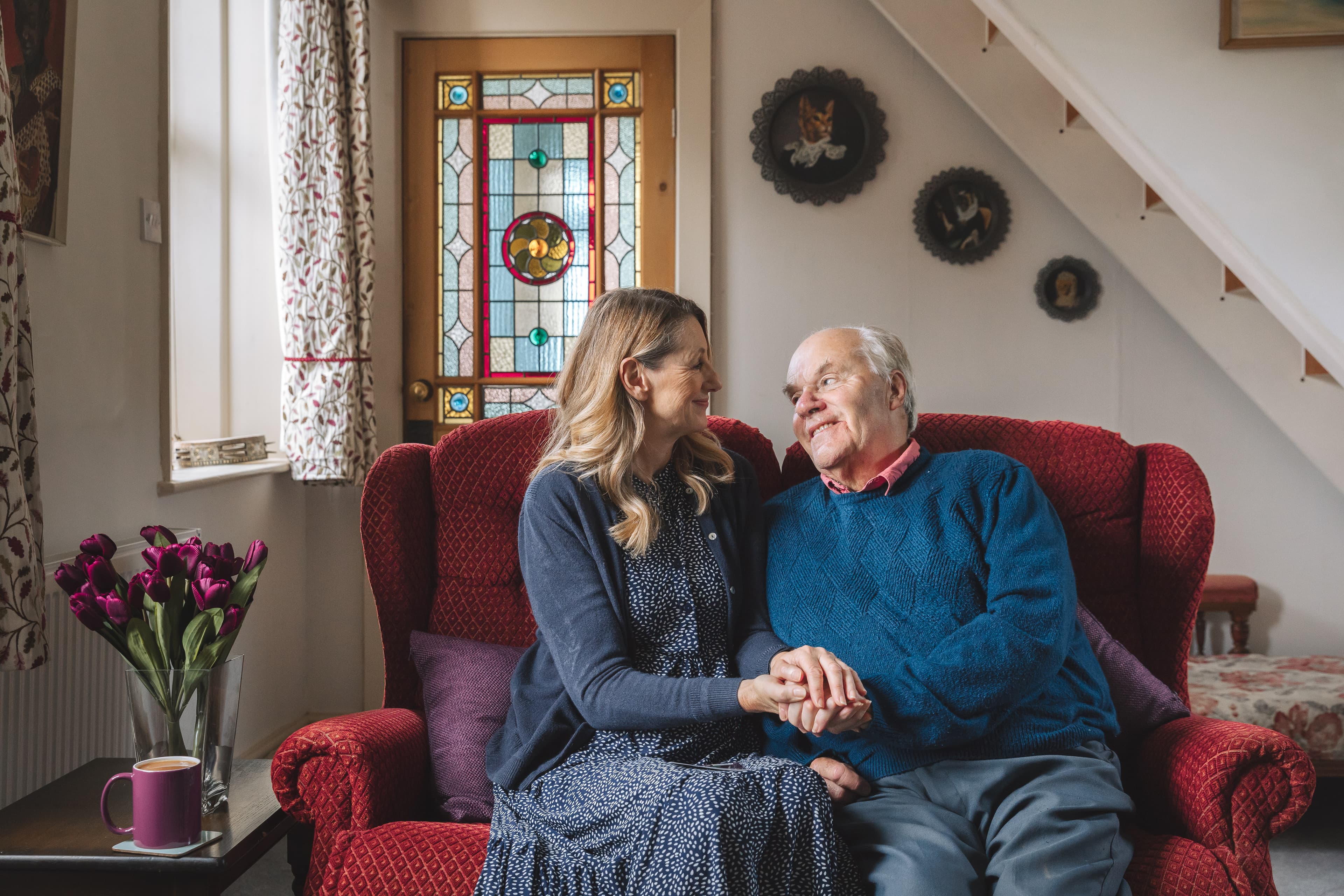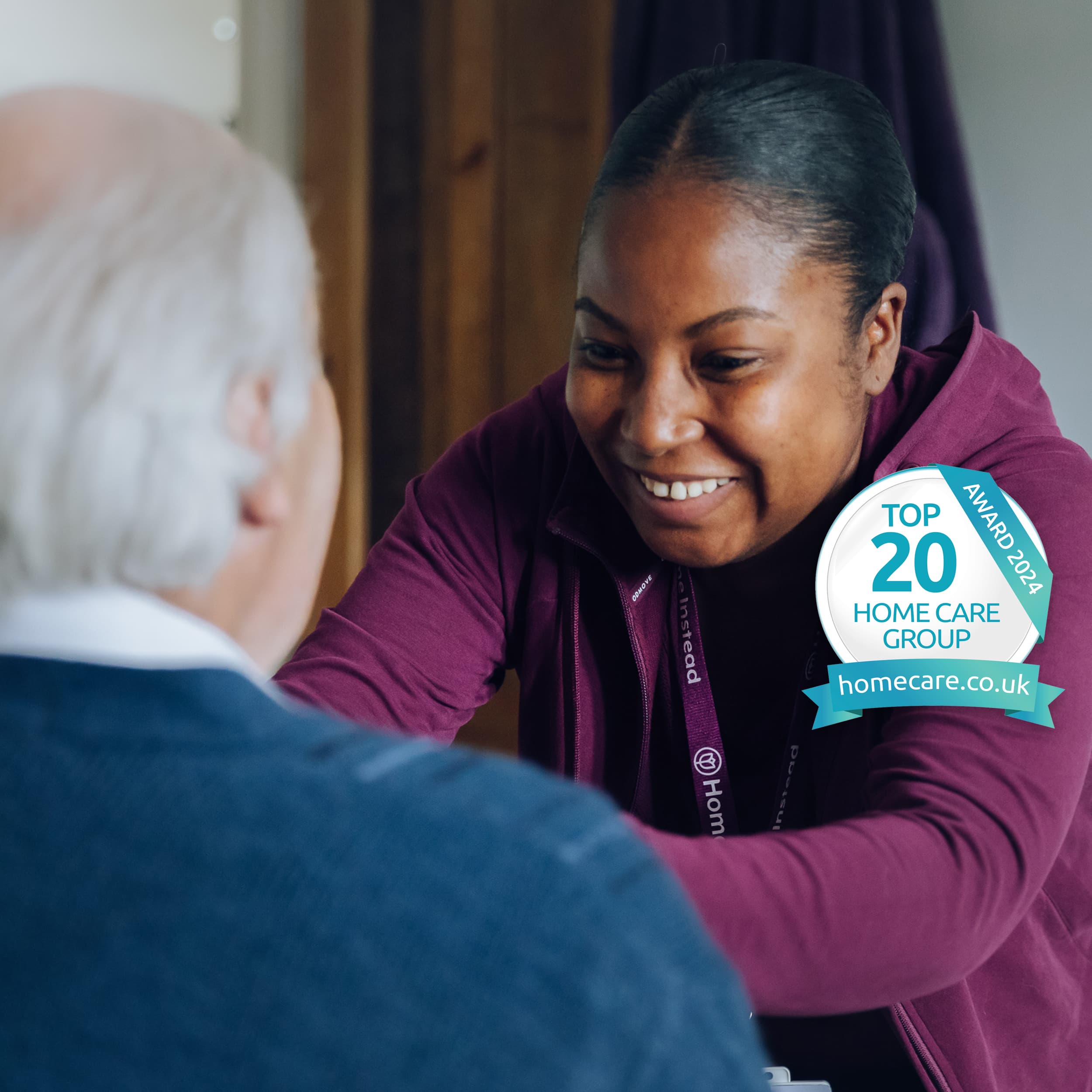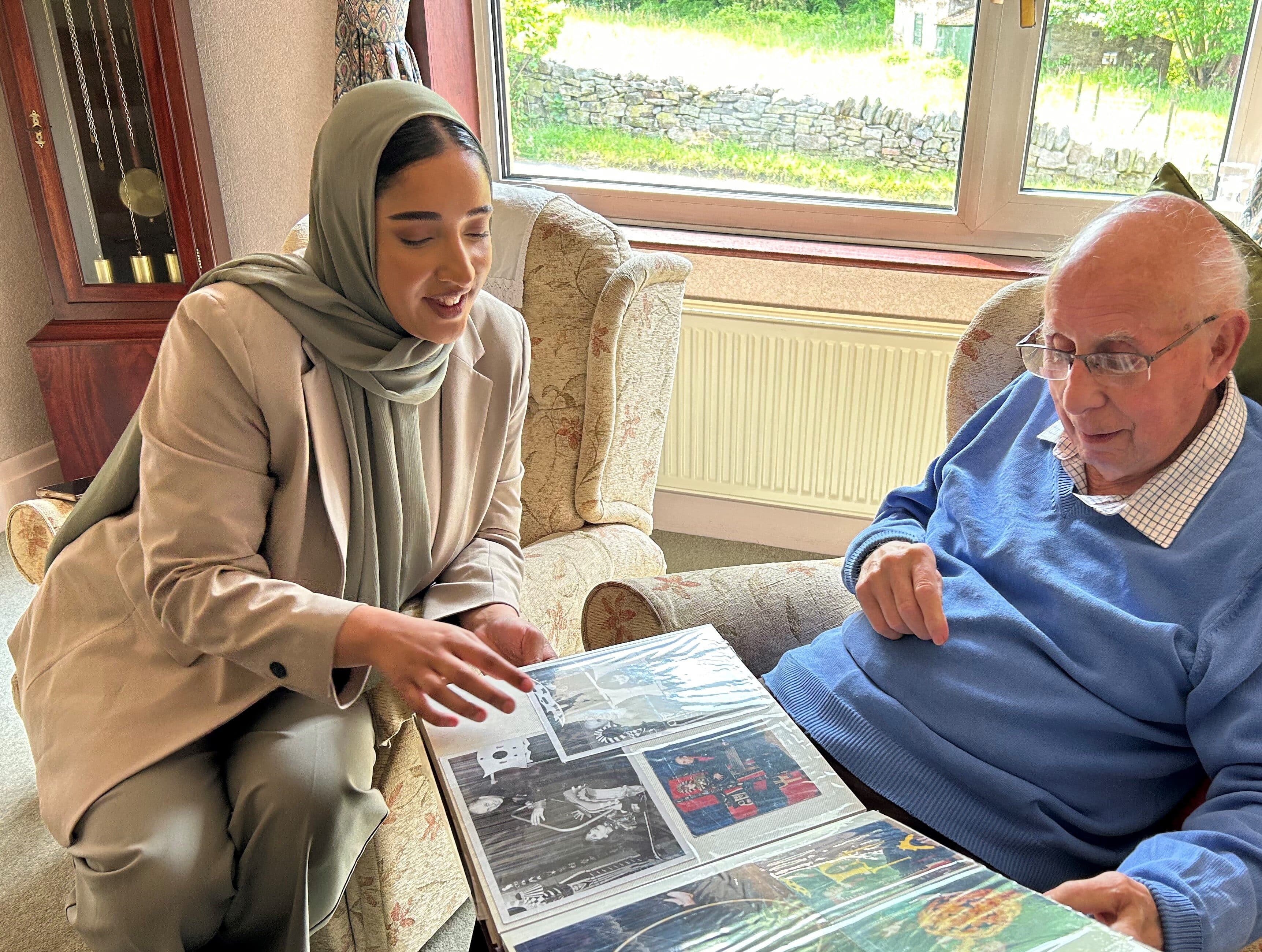
Pancreatic cancer care at home
Personalised, dedicated support for pancreatic cancer in the comfort of home, from trained, experienced Care Professionals who understand the challenges of living with cancer.
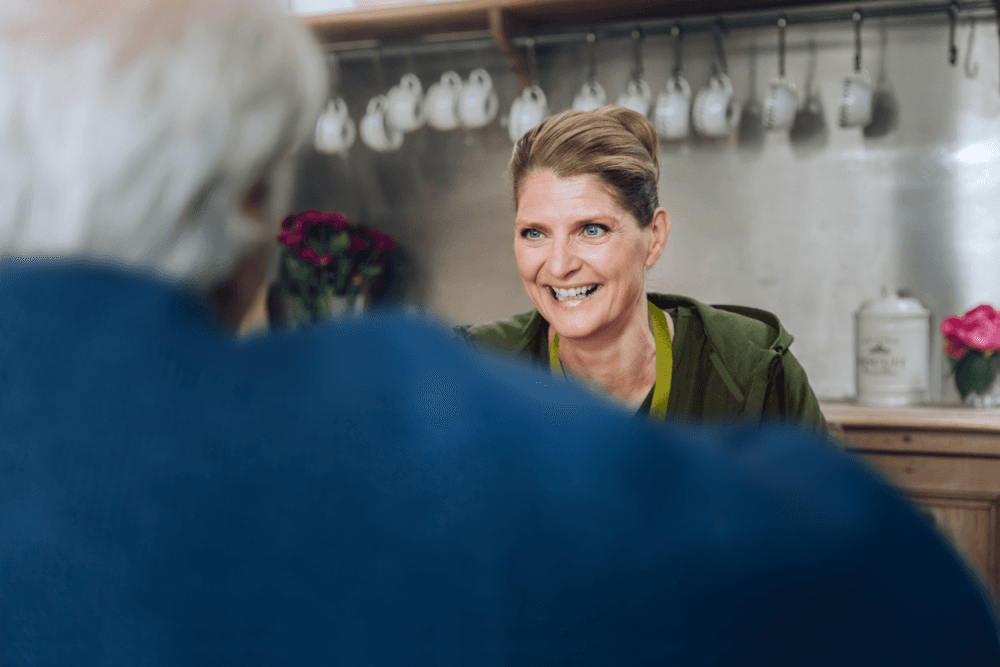
What is pancreatic cancer care?
Pancreatic cancer affects the pancreas, which is the organ at the top of the stomach that helps with digesting food and making hormones like insulin. According to Cancer Research UK, it is the 10th most common type of cancer in the UK.
Symptoms can include skin or the whites of the eyes turning yellow (jaundice), itchy skin, loss of appetite, changes in the colour of urine or faeces, unintended weight loss, fatigue or a high temperature. Digestive issues can include vomiting, nausea, diarrhoea, constipation, stomach pain, indigestion and bloating.
Those living with pancreatic cancer will usually need more help at home, such as:
- Personal care and hygiene support
- Companionship and emotional support
- Mobility assistance
Home help and running errands
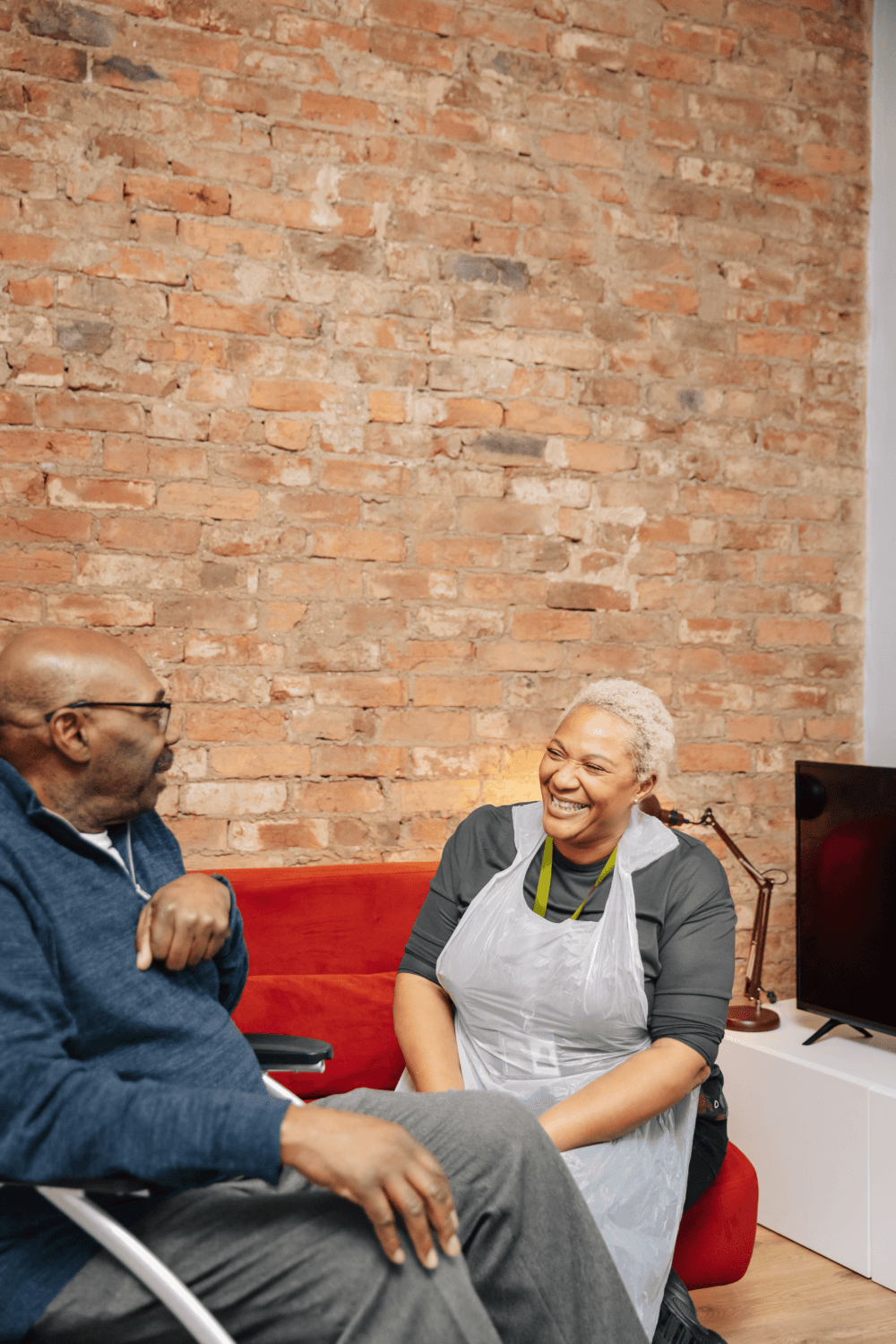
Why is pancreatic cancer care at home important for older adults?
Many patients can benefit from having a knowledgeable, professional caregiver around to take away some of the stress of living with cancer.
According to research from Pancreatic Cancer UK, many people with this type of cancer struggle most with digestive issues, tiredness, and changes in appetite and weight, which can be a source of distress. Findings also suggest they struggle with mental health issues; 22% of pancreatic cancer patients need help with anxiety, and 21% need help with feelings of sadness.
For this reason, remaining at home where they feel safe and comfortable could make a positive difference to their quality of life, enable more family visits to avoid loneliness, and reduce their stress while going through cancer treatment.
Do I need pancreatic cancer care?
Pancreatic cancer can be challenging to treat, and may require surgery, chemotherapy and other medical treatments. Symptoms differ depending on progression, outlook, and accompanying health conditions, but whether you are undergoing treatment or living with pancreatic cancer long term, you will likely need extra help at home. This can enable you to continue with daily routines, move around safely, and manage the distressing symptoms that can occur with this type of cancer.
Home care can take on any strenuous tasks so you can focus on resting and enjoying time with loved ones. Our Care Professionals are trained to provide a bespoke care routine that prioritises and respects your preferences, and can remain flexible as your needs change.
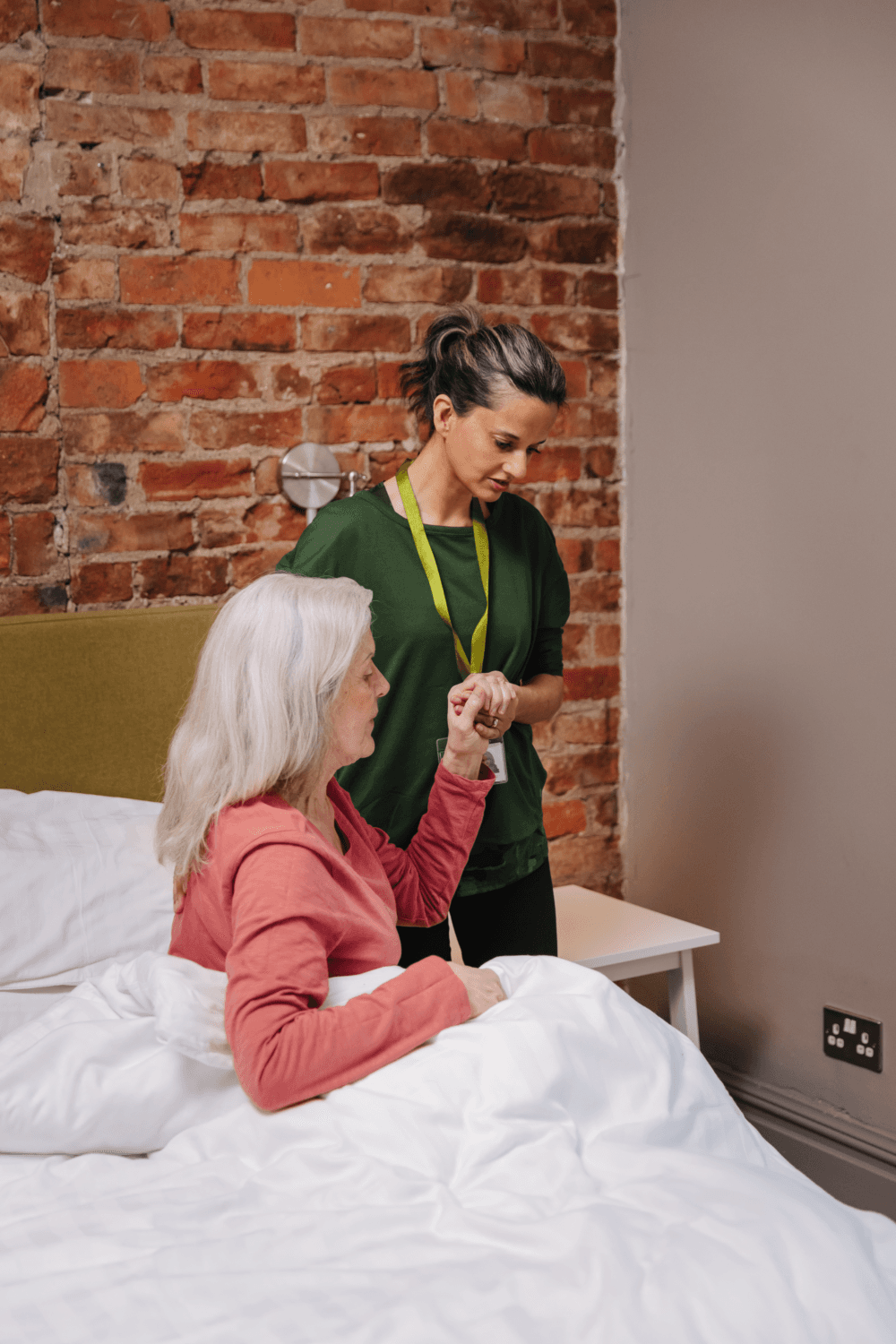
How can we help?
We've helped thousands of families to stay safe, comfortable and happy at home. Whatever situation you're facing, or whatever the question is, Home Instead is here to help.
Are you in need of a little guidance right away?
03300 583450Other non-care-related enquiries
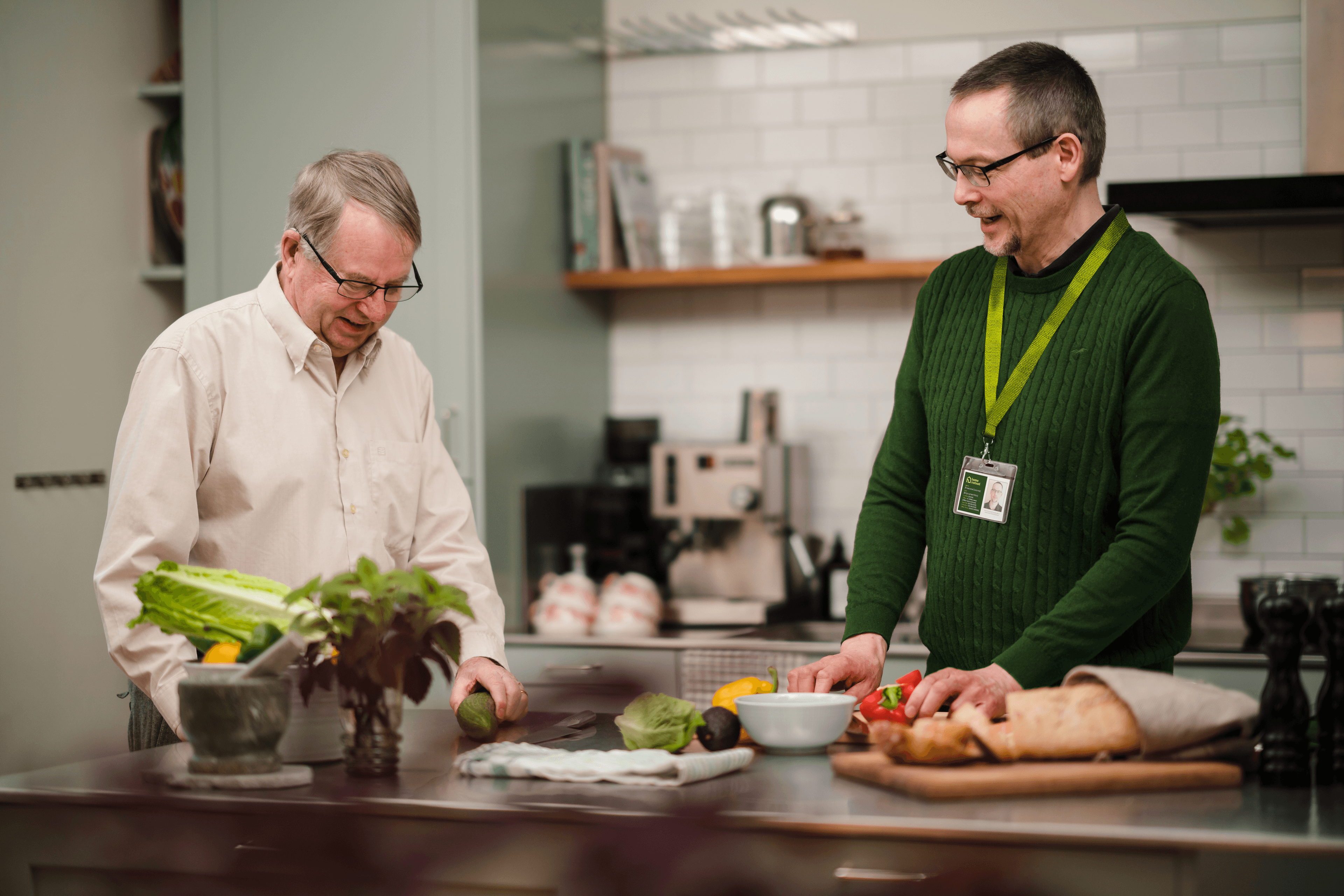
Home Instead have an experienced caring team that far exceeds in quality anything we experienced from other agencies at this point of service.
Steve, Client
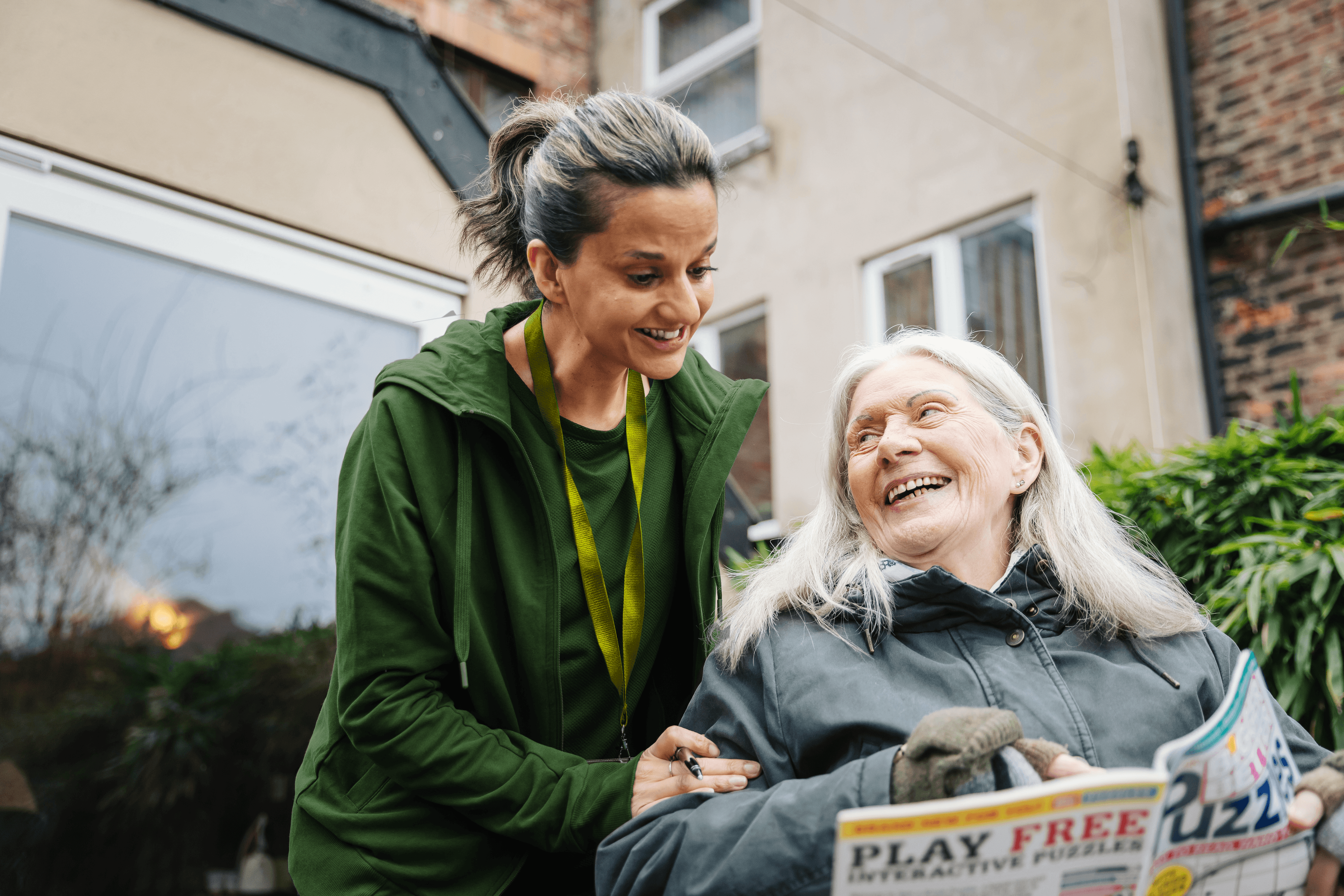
We have been relying on Home Instead for nearly five years now and they have been wonderfully helpful and flexible throughout. I don’t know what we’d do without them.
Carol, Client
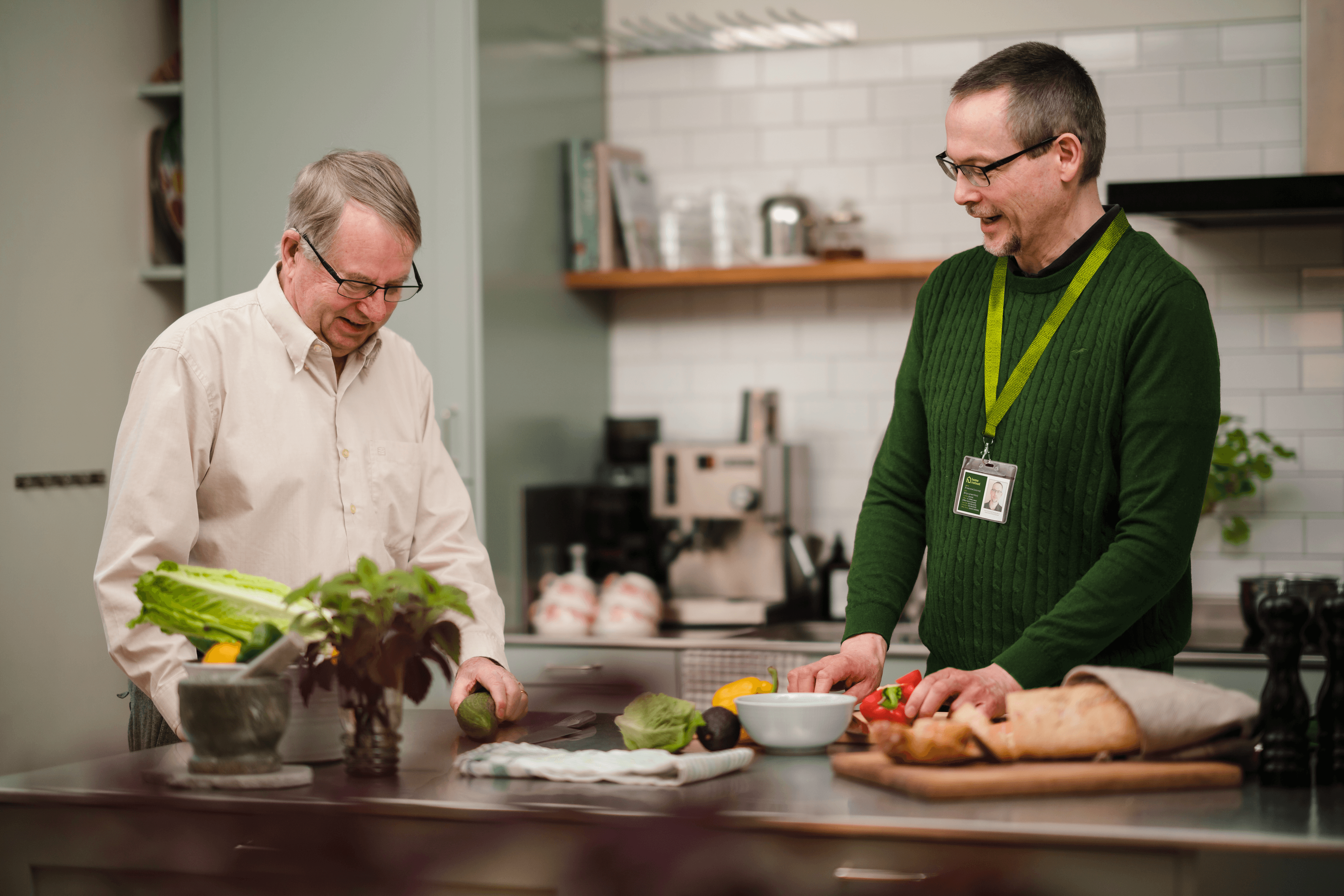
From day one Home Instead has given us a first-class professional caring service. Office staff and carers very helpful and understanding.
Paul and Sandra, Clients
Get in touch today to
see how we can help
Get in touch How to get started arranging pancreatic cancer care
Your GP may talk to you about what to expect from this type of cancer during diagnosis and any subsequent treatment, and this could help to steer you in the right direction when it comes to care needs. A Care Needs Assessment can also help to evaluate your situation at home, and let you know what sort of care could be most beneficial.
If you choose pancreatic cancer care at home, our Care Professionals go the distance to learn your needs and monitor symptom progression to better understand how to help you. Whether you need a friendly face to pop in for a chat to support your mental health, palliative care to manage pain, or regular support for daily tasks like personal care, our Care Professionals can provide the bespoke care you need.
Why Home Instead?
79% of pancreatic cancer cases are diagnosed at stage 3 or 4, meaning their cancer is advanced at the time of diagnosis. We understand the importance of fast implementation of home care, helping anyone living with this type of cancer to maintain their usual routines, avoid stress, and conserve their energy.
Our dedicated Care Professionals can work alongside your clinical team as you manage your symptoms. We are proudly rated 9.6 on Homecare.co.uk, with many of our locations also rated “outstanding” by the Care Quality Commission (CQC), so whatever care needs you have, we can help to design a care package that fits seamlessly into your life so you never miss a moment to take part in enjoyable activities or spend time with loved ones.
Advice & Support
FAQs
- What kind of support can home care provide for elderly people with pancreatic cancer?
Our Care Professionals assist with daily activities like bathing, dressing, and meal preparation. They also provide medication management, pain relief support, and emotional care tailored to the needs of elderly patients.
- How can home care help manage pain and symptoms associated with pancreatic cancer?
All our Care Professionals will work closely with healthcare providers to implement pain management plans, administer medications, and monitor symptoms. They also provide comfort measures, such as positioning and relaxation techniques, to improve quality of life.
- Can home care assist with nutritional needs for elderly pancreatic cancer patients?
Yes, our Care Professionals can help prepare meals that meet dietary requirements, manage feeding tubes if necessary, and monitor for issues like weight loss or difficulty eating, which are common in pancreatic cancer patients.
- How does home care provide emotional and psychological support for elderly patients and their families?
Our Care Professionals offer companionship, listen to concerns, and provide reassurance. They can also connect families with counseling services or support groups to help them cope with the emotional challenges of pancreatic cancer.
- How does home care help to ensure a safe and comfortable environment for elderly pancreatic cancer patients?
Our experienced Care Professionals will assess the home for safety hazards, assist with mobility to prevent falls, and create a calm, supportive environment tailored to the patient’s needs and preferences.




